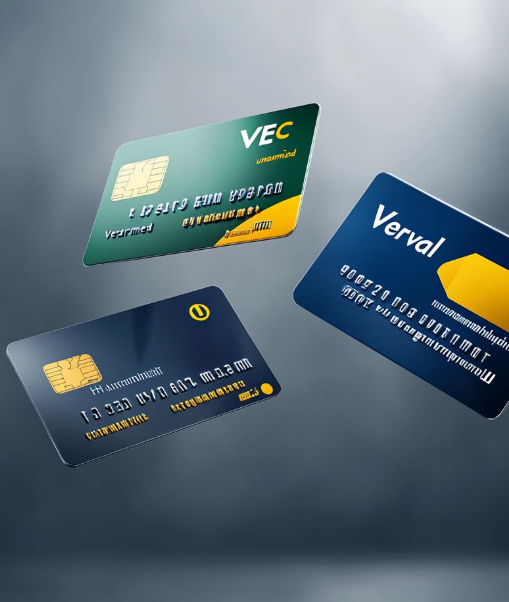Imagine walking into your favorite café in Dubai and paying for your coffee with Bitcoin or USDT. Sounds like something from the future, right? Actually, it’s already happening. Businesses across the UAE are increasingly accepting digital assets as payment, and the trend is growing faster than many might expect.
However, accepting cryptocurrency legally in the UAE isn’t as simple as adding a Bitcoin wallet to your checkout page. The regulations are evolving, and understanding how to navigate this space is essential for businesses looking to get involved. This guide will help you understand the steps for legally accepting crypto payments in the UAE and the advantages this can bring to your business.
The Rise of Crypto Payments in the UAE
The UAE is not just crypto-friendly—it’s quickly becoming a global hub for blockchain and digital asset innovation. From the Dubai Multi Commodities Centre (DMCC) to the Abu Dhabi Global Market (ADGM), the region is developing strong regulatory frameworks to encourage the adoption of crypto rather than resist it.
Here are some of the key reasons businesses in the UAE are embracing crypto payments:
- Customer Demand: More consumers are asking to pay with digital currencies.
- Faster Settlements: Crypto can eliminate delays commonly associated with traditional banking systems.
- Lower Fees: Especially when it comes to international transactions, crypto can save businesses money.
- Global Reach: By accepting stablecoins like USDC or USDT, businesses can easily serve international clients.
What Does Accepting Crypto Legally Mean in the UAE?
In the UAE, businesses can’t just start accepting crypto without following certain legal procedures. Crypto is treated as a regulated financial activity, meaning businesses must work within licensed structures to accept digital payments legally.
To operate legally, businesses must either:
- Partner with a licensed Virtual Asset Service Provider (VASP), or
- Obtain a license themselves from a UAE regulator such as VARA (Dubai) or FSRA (Abu Dhabi).
Most businesses choose to collaborate with a regulated partner to simplify the process.
Key Regulators and Zones in the UAE
- VARA (Dubai’s Virtual Assets Regulatory Authority): Dubai has established VARA to regulate all virtual asset activity, including crypto payments, trading, and custody. This licensing regime ensures businesses comply with consumer protection and operational standards.
- ADGM (Abu Dhabi Global Market): The Financial Services Regulatory Authority (FSRA) in ADGM allows businesses in the crypto space to register and operate legally, making it a preferred zone for fintechs and institutional players.
- DMCC Crypto Centre: Located in Jumeirah Lakes Towers, the DMCC Crypto Centre supports startups and small to medium enterprises (SMEs) in integrating crypto into their business operations. It’s one of the most popular zones for businesses in the MENA region looking to adopt blockchain technology.
How to Start Accepting Crypto Payments Legally: A Step-by-Step Guide
Step 1: Define Your Business Model
Before accepting crypto, decide how you want to handle it:
- Do you want to hold the crypto you receive, or do you want to instantly convert it to AED (dirhams)?
- Are you offering products, services, or handling large B2B transactions?
Your business model will determine the licenses and partners you need.
Step 2: Choose a Licensed Crypto Payments Partner
Most businesses work with a regulated Virtual Asset Service Provider (VASP) rather than obtaining their own license. A licensed provider can:
- Offer tools like APIs and plugins to facilitate crypto payments.
- Handle customer wallets, ensure transaction security, and maintain compliance.
- Convert payments to AED or another stablecoin, depending on your preferences.
Make sure the provider is licensed under VARA, ADGM, or another recognized authority.
Step 3: Update Your Terms and Payment Flow
You’ll need to update your payment systems to accommodate crypto payments. This includes:
- Clearly displaying pricing in both crypto and AED.
- Adding terms and conditions related to refunds, volatility (if not using stablecoins), and payment processes.
- Training your staff to handle crypto-related customer inquiries.
Step 4: Stay Compliant
Even if you’re not directly handling the crypto, it’s important to:
- Understand KYC (Know Your Customer) and AML (Anti-Money Laundering) regulations.
- Keep records of all crypto transactions for auditing purposes.
- Report any transactions to the relevant authorities as required.
Your payment partner should help guide you through these compliance requirements.
Benefits of Accepting Crypto Payments
- Increased Customer Trust: Being able to accept crypto positions your business as innovative and trustworthy, particularly among younger, tech-savvy consumers.
- Instant Global Payments: Crypto payments remove international wire transfer fees and can be settled in minutes, allowing you to sell to clients around the world with ease.
- Improved Cash Flow: Using stablecoins like USDT or USDC means faster payment settlement, improving working capital and reducing payment delays.
Common Use Cases for Crypto Payments in the UAE
Businesses in the UAE are already experimenting with crypto payments in a variety of sectors:
- Real Estate: Developers are accepting stablecoin deposits for off-plan properties, making transactions faster and more transparent.
- Luxury Goods Retail: High-end retailers are allowing customers to pay with Bitcoin or USDT.
- Tourism & Hospitality: Foreign visitors can pay for hotel stays or experiences with their crypto wallets.
- Freelancers and Consultants: International contractors can receive payments via crypto, avoiding long wait times for wire transfers.
Things to Watch Out For
- Volatility: Unless you’re accepting stablecoins, the value of cryptocurrencies can fluctuate drastically. Consider converting crypto to AED right away to avoid risk.
- Scams and Fake Providers: Always verify the credentials of your payment partner. Ensure they are licensed by VARA, ADGM, or DMCC to avoid falling victim to scams.
- Tax and Accounting: Crypto transactions may involve VAT or require special reporting. Make sure you work with accountants who understand digital assets.
How Fuze Can Help Your Business Accept Crypto Payments
Fuze provides businesses in the UAE with secure and compliant access to digital assets. Through our OTC desk, we facilitate large-volume stablecoin trades, including USDC and other tokenized currencies, ensuring quick settlement and full regulatory compliance.
Our platform offers transparent, risk-managed digital asset transactions, whether you’re a CFO looking to explore new payment options or a corporate treasurer seeking to hedge currency risk.
Conclusion
Crypto payments are no longer just for tech companies or large global firms. In the UAE, businesses of all sizes, from real estate developers to retailers, are adopting this modern payment method.
By understanding the regulations, partnering with licensed providers, and staying compliant, your business can tap into new customer bases, streamline operations, and stay ahead in the digital economy.













